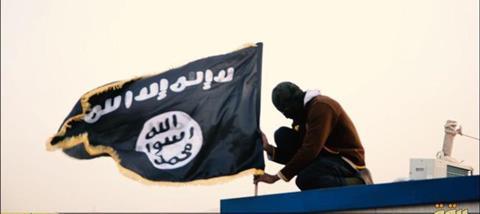
Jewish families across the world marked the beginning of Passover last week by saying:
‘This is the bread of our affliction that our fathers ate in the land of Egypt. Let all who are hungry come and eat. Let all who are needy come and celebrate Passover. This year we are here, next year may we be in the land of Israel. This year we are slaves, next year may we be free’.
Passover centres on remembering the biblical Exodus from Egypt and thanking God for our relative comfort and freedom today. And yet the first thing we say at the Passover Seder (festive meal and ceremony) is phrased in the present tense – ‘this year we are slaves’ ‘let all who are needy [now] come and celebrate Passover’. The Babylonian Talmud (Pesachim 116b) states that ‘In every generation one is bound to regard oneself as though they had personally gone forth from Egypt’.
There is a requirement to relate on a deeply personal level to the biblical experience of slavery and persecution in Egypt. In doing this, it strengthens one’s relationship with God, identifying God as the sole active force in the redemption out of Egypt and acting as a reminder of God’s omnipotence and benevolence. It also increases one’s humanity and empathy for those suffering similar persecution now.
Many Passover Seders include readings and reflections on modern slavery, human trafficking and refugees, and Passover presents us with an ideal time to reflect on our treatment of others, and our support for those who are suffering persecution.
The horrors of the Holocaust remain an ever-present warning of what happens when sectarian division and religious intolerance reach their conclusion.
There is still persecution which needs to be addressed, not least the current persecution of Christians (and Yazidis, Shi’i Muslims and other minorities) that we see in the Middle East today due to ISIS. This persecution resonates profoundly with much of the Jewish community.
And it is not just Talmudic and medieval Jewish thought that obliges us to respond. The horrors of the Holocaust remain an ever-present warning of what happens when sectarian division and religious intolerance reach their conclusion. As Jews we say ‘never again'. But we don't just say those words. We mean them. We believe it is important to highlight and fight against places (such as Iraq and Syria) where the message of ‘never again’ has not been heard.
We are encouraged by the recent Parliamentary vote which unanimously recognised ISIS atrocities against Christians and other minorities as genocide, and saddened that such a tragedy has been able to happen again.
As the situation in Iraq and Syria continued to deteriorate last year, we at the Council of Christians and Jews (CCJ) were approached by a growing number of Jews who wanted to respond to the suffering and persecution experienced by Christians in the region. After conversations with H.G. Bishop Angaelos and other clergy connected to the region we decided to create If Not Now When – an initiative and resource to assist Jewish communities to engage in prayer and reflection on the persecution of Christians in the Middle East and to connect with Christian communities locally.
As Jews we say ‘never again'. But we don't just say those words. We mean them.
If Not Now When comes from a quote from Ethics Of The Fathers which says ‘If I am not for myself, who will be for me. If I am only for myself, what am I. And if not now, when?’ Of course as Jewish communities in Europe feel increasingly targeted by antisemitism (and this is also felt more and more here in the UK) we need to respond to that, but we are equally responsible for responding to the suffering and persecution of others.
As the initiative has developed since August last year, we have heard from Jewish communities across the country who have used our resource to reflect on this issue, and still more who have taken the opportunity to reach out to local Churches (and also in some cases Muslim communities) in friendship to open a dialogue and in some cases offer support to refugees fleeing conflict, an issue that is intimately connected with this persecution. As we go about this work, we also pray for a time when initiatives responding to such tragic circumstances are no longer necessary.
Click here for more information about CCJ’s If Not Now When campaign
Click here to request a free copy of Premier Christianity magazine



























